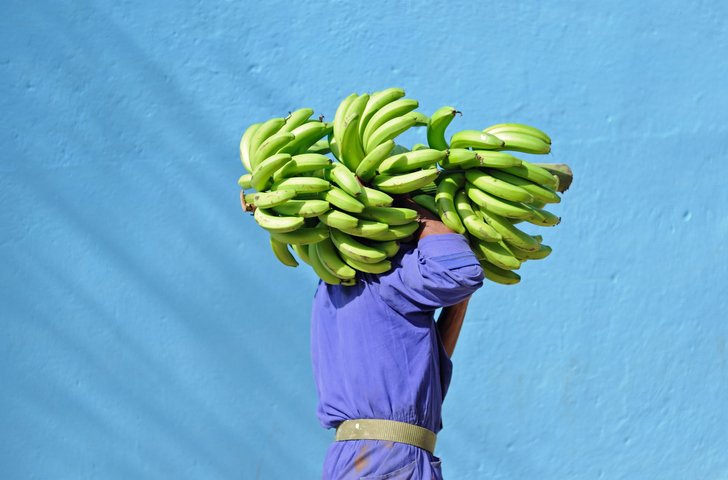New data published ahead of Fairtrade Fortnight (21 Feb-06 March) reveals over 60% of Brits are unaware of the threats that climate change poses to UK supplies of cocoa, coffee and bananas.
In addition, well over three-quarters (78%) of respondents believe it’s important that people overseas who produce tea, coffee, food, flowers, cotton and other staple products imported by the UK are able to adapt to climate change.
The consumer survey, commissioned by the Fairtrade Foundation and run by Opinium, reveals that while public understanding of the links between decent incomes for farmers and climate resilience is low, there is a strong public willingness to address inequality caused by exploitative trade and climate change.
Climate change, cocoa and bananas
The findings follow new research from VU Amsterdam and Bern University of Applied Sciences that reveals over the next three decades, adverse climate conditions will trigger a drastic decline in banana yields in 10 countries, including India, Brazil and Colombia.
On top of that, a rise of just 2.1°C could leave 89.5% of the land used to cultivate cocoa unsuitable by 2050.
Avoiding exploitation
The survey also looked at whether increased public awareness around black history and racial equality in the UK over the last 18 months had had an effect on individuals’ understanding of exploitative trade, and their subsequent response.
It found that only 27% of Brits had become more aware of the UK’s colonial past and the exploitation that occurred at the hands of the British Empire, rising to just over a third (35%) of those aged between 18-34.
In light of increased awareness of historical exploitation, just one fifth (21%) have considered how they can avoid supporting exploitation in today’s trade and supply chains by buying certain products and avoiding others.
In addition, the survey found that one in 10 (16%) respondents believe damaging trade practices are a thing of the past. Nevertheless, it indicated the willingness of the majority to play their part in ending harmful trade practices, with two-thirds (67%) saying they would not buy a product if they knew it had links to human rights abuses or exploitation.
Fairtrade Fortnight
Fairtrade commissioned the survey ahead of Fairtrade Fortnight, the two-week annual campaign created to raise awareness about the positive impact of buying Fairtrade products.
This year’s Fortnight will highlight how buying Fairtrade is a simple yet impactful choice people can make to support farmers and workers in low-income countries as they work to adapt to the effects of climate change.
 Play Video about This Rock Might Just Save The World
Play Video about This Rock Might Just Save The World Play Video about Play 2 hours of rock
Play Video about Play 2 hours of rock Play Video about Play 2 hours of brook
Play Video about Play 2 hours of brook Play Video about Play 2 hours of sheep
Play Video about Play 2 hours of sheep











































